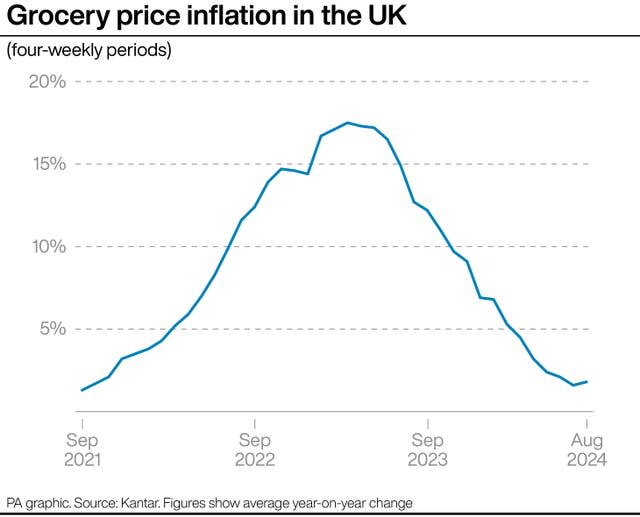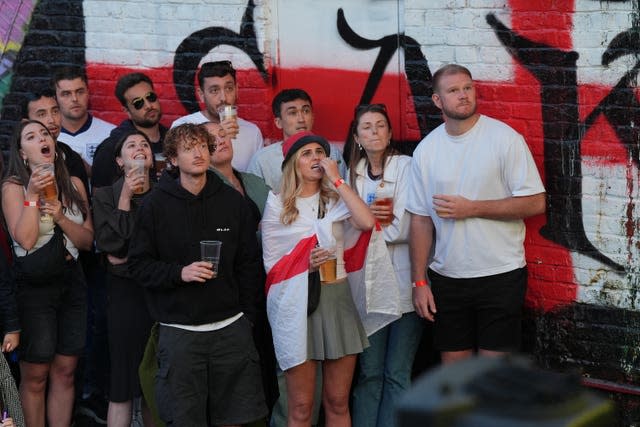Grocery price inflation rises for first time since March 2023
Grocery price inflation has risen for the first time since March last year, figures show.
Supermarket prices were 1.8% higher than a year ago over the month to August 4, nudging up slightly from 1.6% in July, analysts Kantar said.
The increase follows 17 straight months of falling rates from a peak of 17.5% to its lowest point since September 2021 in July.

Consumers are witnessing a mixed picture on supermarket shelves, with prices rising across 182 product categories while the cost of 89 others fell.
Kitchen towels and baked beans are 7% and 5% cheaper respectively than last year.
Fraser McKevitt, head of retail and consumer insight at Kantar, said: “Having reached its lowest rate in almost three years in July, August saw inflation nudge up again slightly. While this is noticeable following 17 straight months of falling rates, it actually marks a return to the average levels seen in the five years before the start of the cost-of-living crisis.
“With this kind of pricing spread, shoppers will find that the type of product they’re putting in their baskets will really dictate how much they pay.”
Shoppers are continuing to take advantage of promotions offered by grocers to help keep prices down, with spending on deals rising by 15% while sales of products at their usual price saw no increase.
Despite the pressures, consumers sent sales of wine up by 35%, nuts by 60% and crisps by 10% on the Friday of the Olympics opening ceremony, compared with the week before.
Football fans spent £10 million on beer on the day of the Euro 2024 final, the most spent on a Sunday in more than three years.

Sales of ice cream and burgers rose by 23% and 32% respectively compared with last year as the weather improved in July and August, while sales of chilled prepared salad rose by 22%.
However sales of cough lozenges rose by 28% as people battled Covid-19 and summer colds.
Sainsbury’s recorded its largest year-on-year market share gain since July 1997, rising by 0.5 percentage points over the quarter compared with the same period last year.
It was again the fastest growing of the traditional supermarkets, with sales increasing by 5.2%.
Britain’s largest grocer Tesco maintained its streak of winning market share every month since August 2023, rising to 27.6% while increasing sales by 4.9%.
Sales rose by 11.3% at online-only retailer Ocado, continuing its six-month run as the fastest growing grocer.


